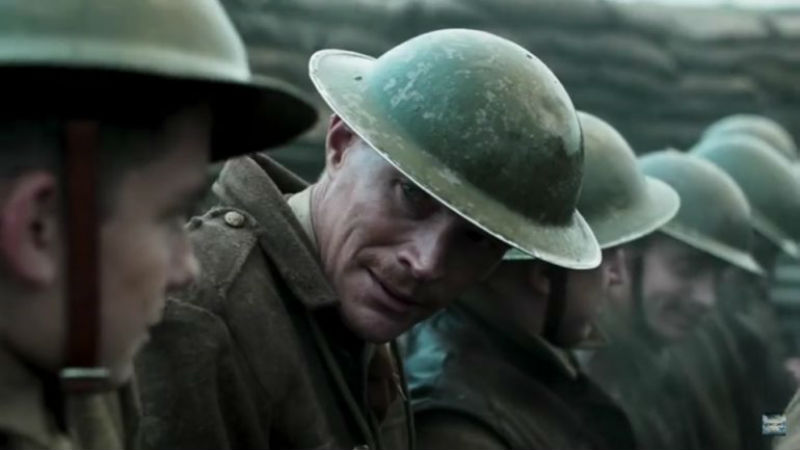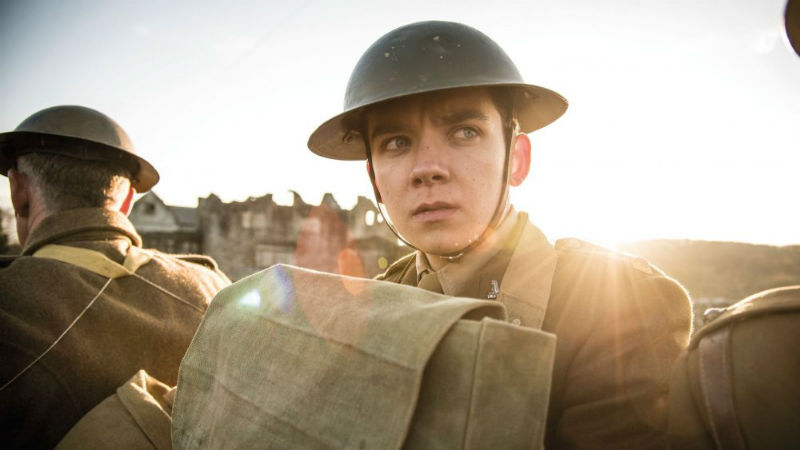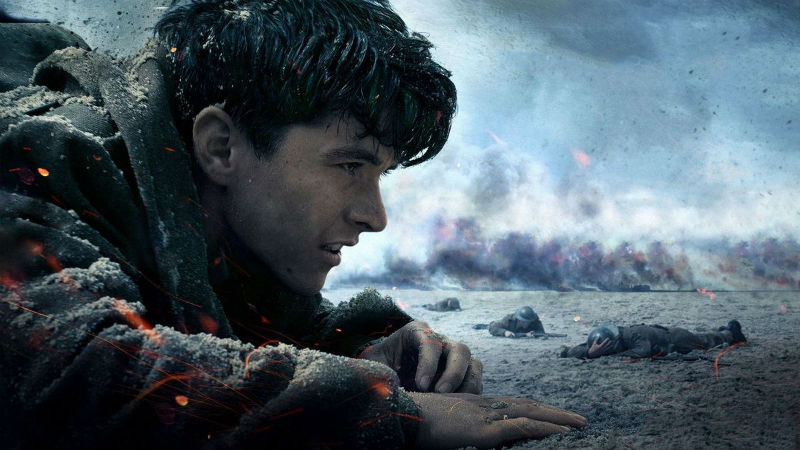




The leading charity in the UK for veterans’ mental health, Combat Stress, worked with the cast and the of crew of Saul Dibb’s Journey’s End, which was released in cinemas all across the country last Friday. The charity provided insight into how post-traumatic stress disorder (PTSD) affects soldiers on the front line.
The film is based on the eponymous R C Sheriff’s play and novel, and it looks at the horrors of trench warfare for a group of soldiers during World War I. The story portrays the effects of PTSD, depression and substance abuse as the soldiers struggle to cope with traumatic experiences. Neither is violence sanitised nor military belligerence glamourised. In fact, the film paints a profoundly harrowing image of war, and so it made it to our top 10 anti-war films of the past year (or so).

.
A vision of war
At DMovies, we believe that war films should never romanticise the conflict, which is grotesque, repugnant and inhumane by nature. War is dirty and ugly not just in the battlefield; the horrific memories and the psychological scars survive with many veterans. This joint initiative of Combat Stress and the cast/crew of Journey’s End is a shining example of how cinema can be used in order to raise awareness of a very serious social issue, as well as a tool for personal liberation. It fits incredibly well with our vision, mission and values.
We spoke to Sue Freeth, Chief Executive of Combat Stress, and she explained: “As audiences will see in Journey’s End, post-traumatic stress disorder is a very serious mental health condition that, left untreated, can have a devastating impact on those affected and their loved ones.”
She then clarified how the effort started: “because Combat Stress formed in 1919, people who work in media are familiar with us, and our association with shell shock and PSTD treatment. It was Guy [de Beaujeu, the film producer] who approached us. The film is his brainchild, and he captured brilliantly everything our veterans taught them. This is particularly difficult because shell shock and PSTD are invisible. The soundtrack was a very important part of the film, it captured the density of the moment, the feeling of being trapped. This is a difficult film to watch, but people need to know what it feels like to be in the place”
Combat Stress worked with the film cast and crew in more than one way: “Our medical director gave advice to the writers and filmmakers, while three veterans had a workshop with the main actors Sam [Claflin, pictured at the top], Paul [Bettany, second picture from the top], and Asa [Butterfield, pictured just below].”

.
Cinema is a change enabler
Freeth said: “Film takes the public to places unimaginable. Journey’s End puts war under the microscope with agonising moments, without glorifying it. Hopefully after seeing this production more people will start conversations and come forward seeking help. Numbers have grown since the Falklands and Northern Ireland. I think the stigma [attached to seeking mental health support] went down in Afghanistan and Iraq. Still, it takes on average 10-12 years before veterans come forward.”
The situation is far more serious for males. “Men are trained to operate without help, to keep focus on the task, and to ignore things on the way. And they also tend to have more combat exposure than women. After the war, they tend to isolate and block themselves, and even to destroy relationships. Less than 10% of our patients are women, but this figure is now growing.”
.
A long-term relationship
This is not the first time Combat Stress has worked with filmmakers, film crew and cast. Below is a list of recent collaborations:
1. In Our Name (Brian Welsh, 2010) – Actress Joanne Froggatt met a group of veterans at one of Combat Stress’s treatment centres while she was researching her role as a soldier with PTSD. She spoke to the veterans about their experiences in the military and how PTSD affected their lives.
2. The Veteran (Matthew Hope, 2011) – While researching for his role in the film, actor Toby Kebbell met with a group of veterans at one of Combat Stress’s treatment centres.
3. Macbeth (Justin Kurzell, 2015) – During pre-production Combat Stress arranged for one of their clinicians and a veteran to meet with Kurzel and actors Michael Fassbender and Marion Cotillard. During the meeting the veteran spoke about his experiences in the Army, serving on the front line, and the impact PTSD had had on his life.
4. Dunkirk (Christopher Nolan, 2017) – The premiere of Dunkirk was held in London in aid of Contact, a collaboration of military charities including Combat Stress. Contact is a charity partner of Heads Together, the mental health initiative launched by Their Royal Highnesses The Duke and Duchess of Cambridge and Prince Harry. The image below is from Dunkirk.

.
If you think that you could benefit from the services offered by Combat Stress, and want to help a loved one, don’t hesitate. You don’t have to wait 10 to 12 years. You can do it right now by clicking here.
This is not the first time that DMovies investigates how cinema and the charitable sector have worked together. Don’t forget to read our piece on how Ken Loach’s 1966 classic Cathy Come Home triggered the creation of homeless charity Crisis. Click here in order to find out more.











